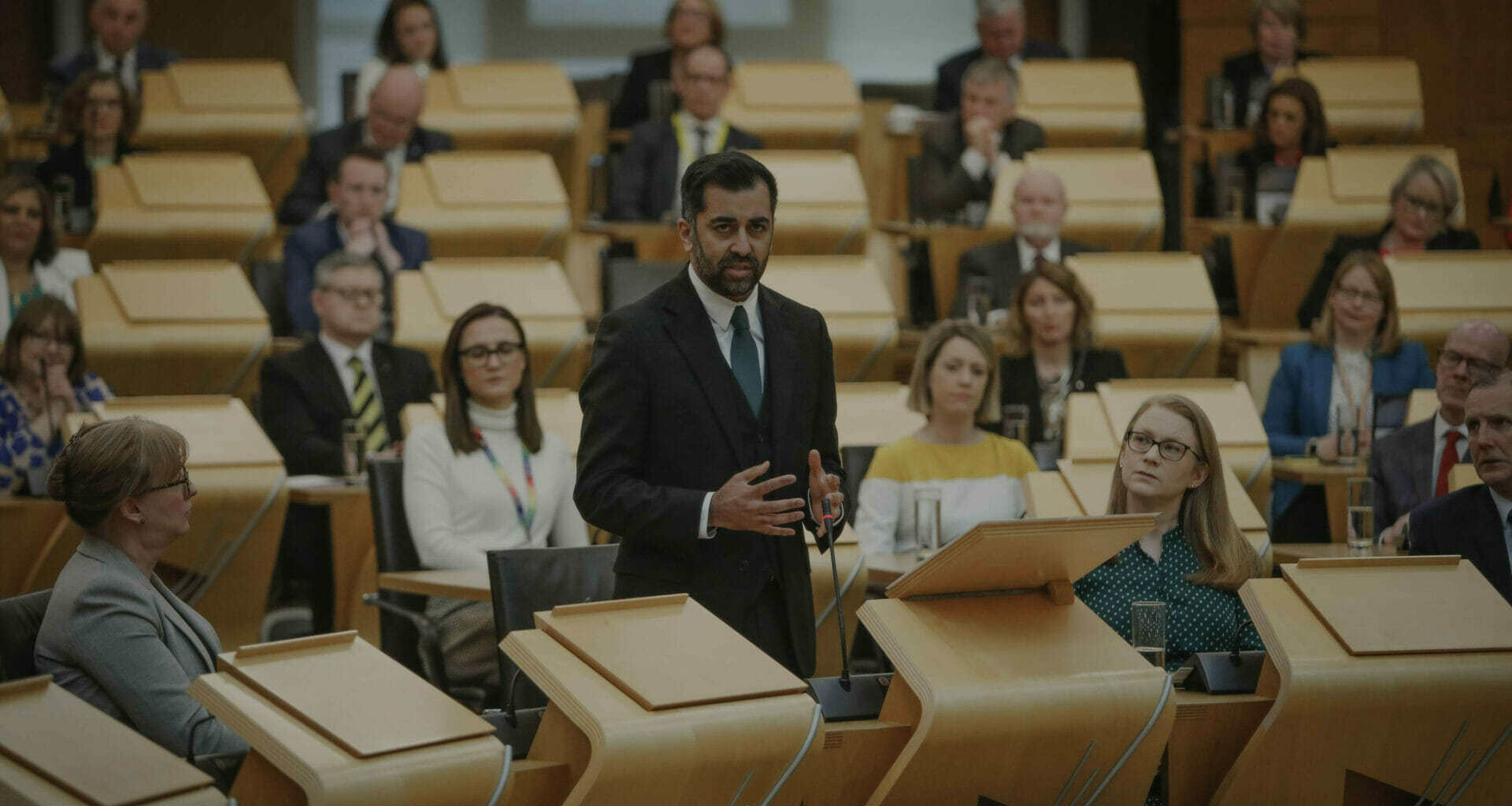It is the start of a significant year in Scottish politics, with voters likely to go to the polls in the first UK general election since 2019.
While polling currently puts the Labour Party ahead of the Conservatives UK-wide by a significant margin, in Scotland, the SNP’s decade-long lead among voters is coming under threat.
The party is also facing internal struggles over its path to securing independence, with polling suggesting the public is still split in its support for Scotland leaving the UK.
As we enter 2024, Ferret Fact Service has examined the state of the parties and polling ahead of a potentially seismic 12 months for Scotland.

Who will be the biggest Scottish party at Westminster?
The race to become the largest party in Scotland at the next Westminster election is very close.
The SNP’s once unassailable polling lead in Scottish politics is under threat from a resurgent Scottish Labour.
A November poll by the company Redfield and Winton put Scottish Labour in the lead in a Westminster Scottish poll for only the third time in nearly ten years.
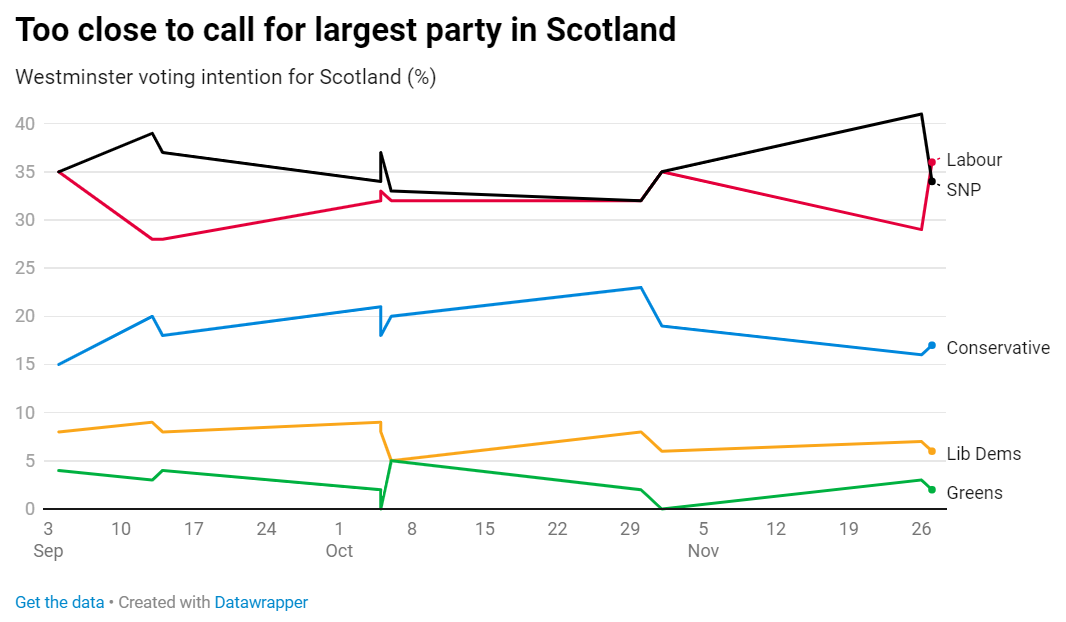
Who will win the election?
There is much work to do for the Tories to remain in power after the next election, the date of which has yet to be revealed.
Rishi Sunak has confirmed that the election will take place at some point this year.
A series of scandals which led to the resignation of Boris Johnson have impacted their polling, and Rishi Sunak has so far been unable to arrest the decline in support for the party among the public.
In UK-wide polling, Labour has a significant lead over the Tories, which has seen its popularity decline since April 2020. Labour has led in Westminster election polling for about two years, and the last ten polls give them an average poll lead of 17 percentage points.
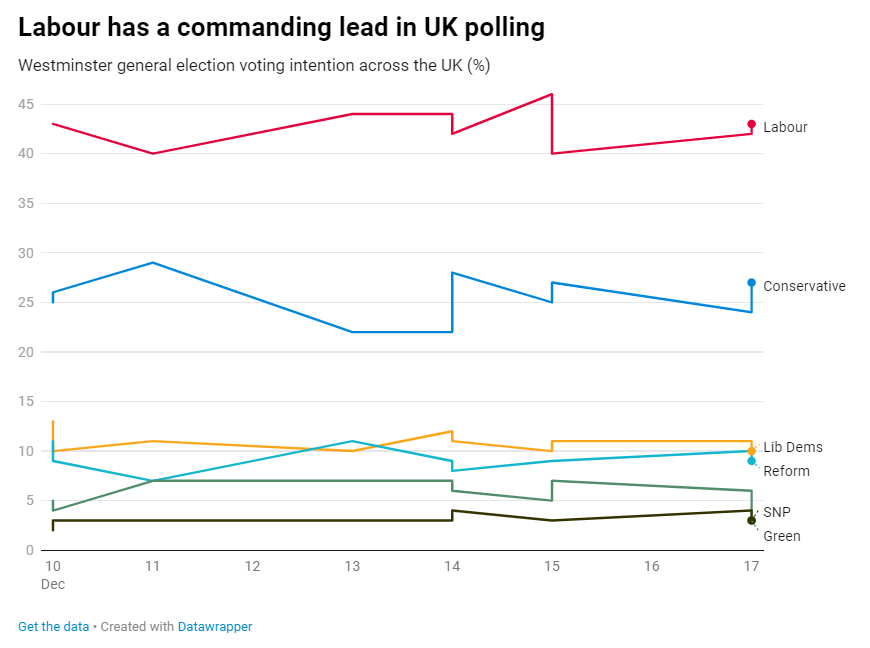
How is Humza Yousaf polling?
First minister Humza Yousaf has had a tough time since taking over from Nicola Sturgeon in March 2023.
There is an ongoing police investigation into the SNP’s finances which has led to the arrests and questioning of prominent party figures, including his predecessor, but no charges yet.
The Scottish Government also faced significant barriers to its legislative agenda last year, with its gender recognition reform act blocked by Westminster over concerns it would impact on reserved legislation. Yousaf was also forced to delay the deposit return scheme after threats it could be blocked by the UK, and scrapped a high-profile marine protection policy.
Across nine surveys since Yousaf became first minister, his overall disapproval rating has remained stubbornly higher than approval.
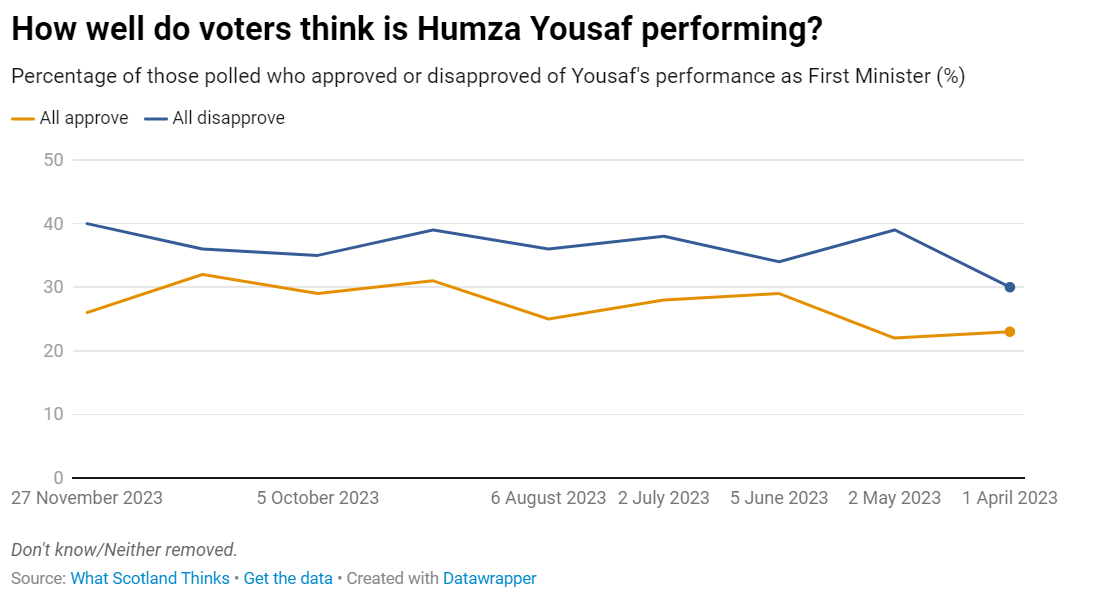
Do Scots support Scottish independence?
The prospect of a second Scottish independence referendum still looms large in Scottish politics.
Attempts by the Scottish Government to secure a second referendum in recent years have been rebuffed by the UK, and there is internal disagreement within the independence movement and the SNP about how best to progress the issue.
Yousaf has set out a new strategy on independence, which was backed by a majority of party members at the SNP conference in October. It proposes fighting the next general election on an independence platform and, if the party gets the most seats in Scotland, beginning negotiations with the UK Government about independence.
Support for independence has been lower than remaining in the UK in most recent polls, although a Yes vote was higher than No in two polls for Ipsos and Opinium in November and December 2023.
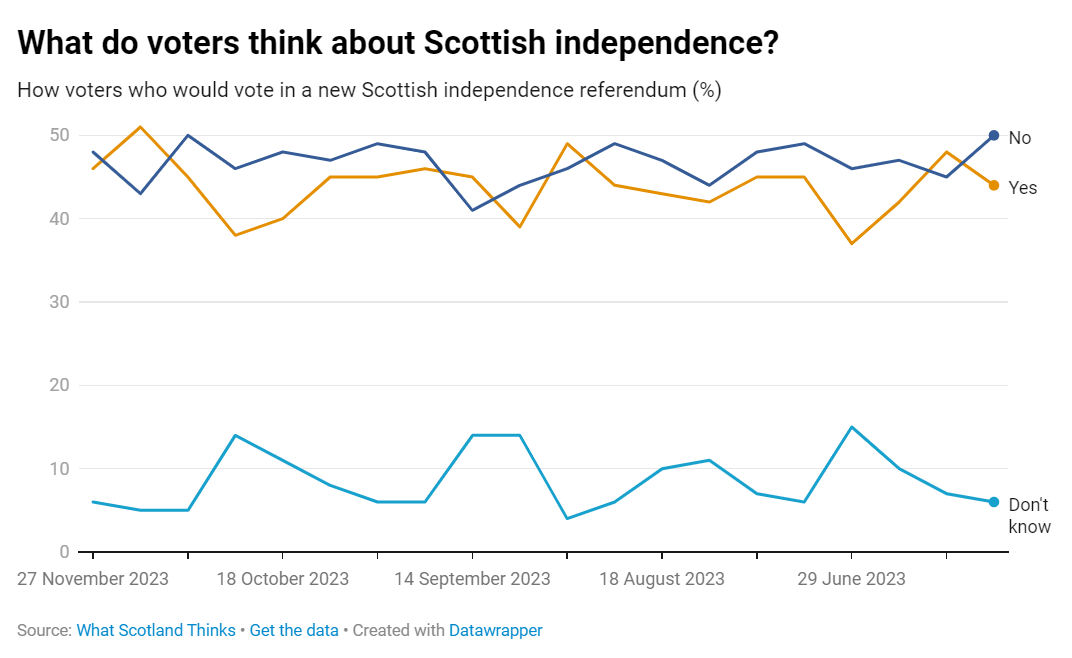
Ferret Fact Service (FFS) is a non-partisan fact checker, and signatory to the International Fact-Checking Network fact-checkers’ code of principles.
All the sources used in our checks are publicly available and the FFS fact-checking methodology can be viewed here.
Want to suggest a fact check?
Email us at factcheck@theferret.scot or join our Facebook group.
Note: This article was updated to correct errors in the data visualisation.












